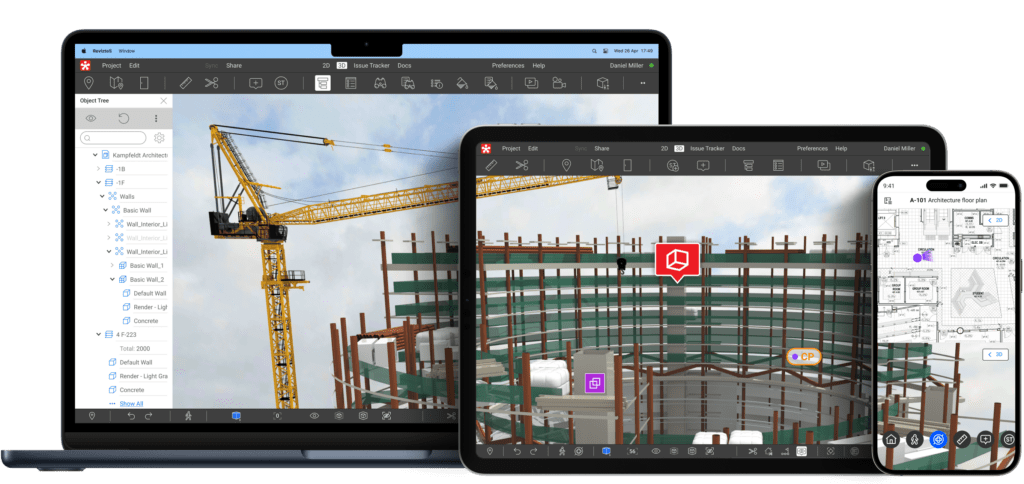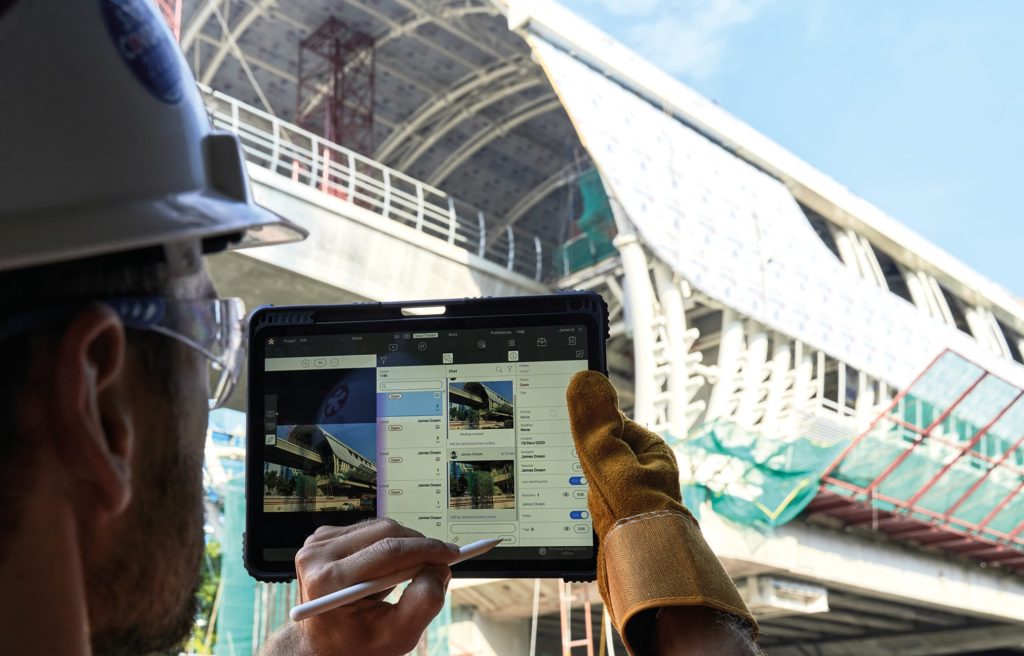Why you can no longer wait to embrace BIM and cloud-based collaboration

BIM and cloud-based collaboration are no longer optional in construction but essential, writes Jason Howden, chief innovation officer at Revizto
The adage “time is money” has never been more accurate in the ever-evolving construction world. As chief innovation officer for Revizto, I’ve witnessed first-hand the costly repercussions of poor coordination and communication in the architecture, engineering and construction (AEC) industry. It’s time we addressed this pervasive issue head-on.
The construction industry is no stranger to challenges. The sector is a labyrinth of potential pitfalls, from managing complex projects to coordinating multiple stakeholders.
Poor communication and coordination are the most damaging among these, costing the US construction industry more than $31bn in 2018 alone. This figure is staggering, but it’s not surprising.
Construction workers lose almost two full working days each week solving avoidable issues and searching for project information. This inefficiency directly results from poor coordination and communication, a problem we can no longer afford to ignore.
Uptake of BIM and cloud-based collaboration has been slow despite the ground-breaking benefits
The advent of Building Information Modelling (BIM) and cloud-based collaboration technologies has revolutionised the way we approach construction projects. Yet, despite the availability of these tools, their adoption has been slow.
More than 75% of companies provide mobile devices to their project managers and field supervisors, but less than one-fifth consistently use apps beyond email, text, and phone calls to access project data and collaborate with project stakeholders. This underutilisation of technology is a missed opportunity for efficiency and cost savings.
Revizto, with its advanced clash automation, cloud-based collaboration, issue tracking and phone app technology, is an essential tool for every construction project. Revizto combines 3D BIM and 2D CAD data into a shared digital environment, which the entire project team can easily view and access on-site or in the office.
Our advanced clash detection technology allows customers to quickly find design and construction coordination conflicts and manage them through to resolution with our collaborative issue tracker, resolving costly omissions and errors long before they become real delays or rework on site.
The benefits of BIM and cloud-based collaboration are undeniable
BIM allows for better visualisation, improved communication, enhanced coordination and streamlined decision-making. The impact is even more significant when combined with cloud-based collaboration tools like Revizto. These technologies facilitate real-time communication, streamline workflow process automation and provide a single source of truth for all project stakeholders. They enable teams to work smarter, not harder.
At Revizto, we’ve seen the transformative power of these technologies first-hand. Companies like Arcadis, Jacobs and AECOM have used our BIM collaboration software to improve their digital delivery of complex projects.
They’ve reduced coordination time by 50%, and interdisciplinary reviews have gone from four days to four hours. These are not isolated success stories; they’re a testament to what’s possible when we embrace digital transformation.

We must all be a part of the industry’s future
Yet, despite these successes, many in the industry remain resistant to change. The reasons are varied, from regulatory burdens and fragmentation to a simple lack of investment in technology and R&D. But the cost of inaction is high. Without effective coordination and communication, we risk delays, cost overruns and quality issues. The construction industry can no longer afford to ignore the digital tools.
The time for change is now. The technology is available, and the benefits are clear. With tools like Revizto, we can avoid costly delays, rework, and errors during construction. We can improve communication, enhance coordination and increase efficiency. But it requires a commitment to change and a willingness to embrace new working methods.

As industry professionals, we have a responsibility to drive this change. We must champion the adoption of BIM and cloud-based collaboration technologies. We must challenge the status quo and strive for continuous improvement. And we must do it now.
The cost of not coordinating in BIM or not using cloud-based collaboration technologies on your construction project is too high. It’s time we embrace the digital revolution and realise the full potential of our industry. The future of construction depends on it.

